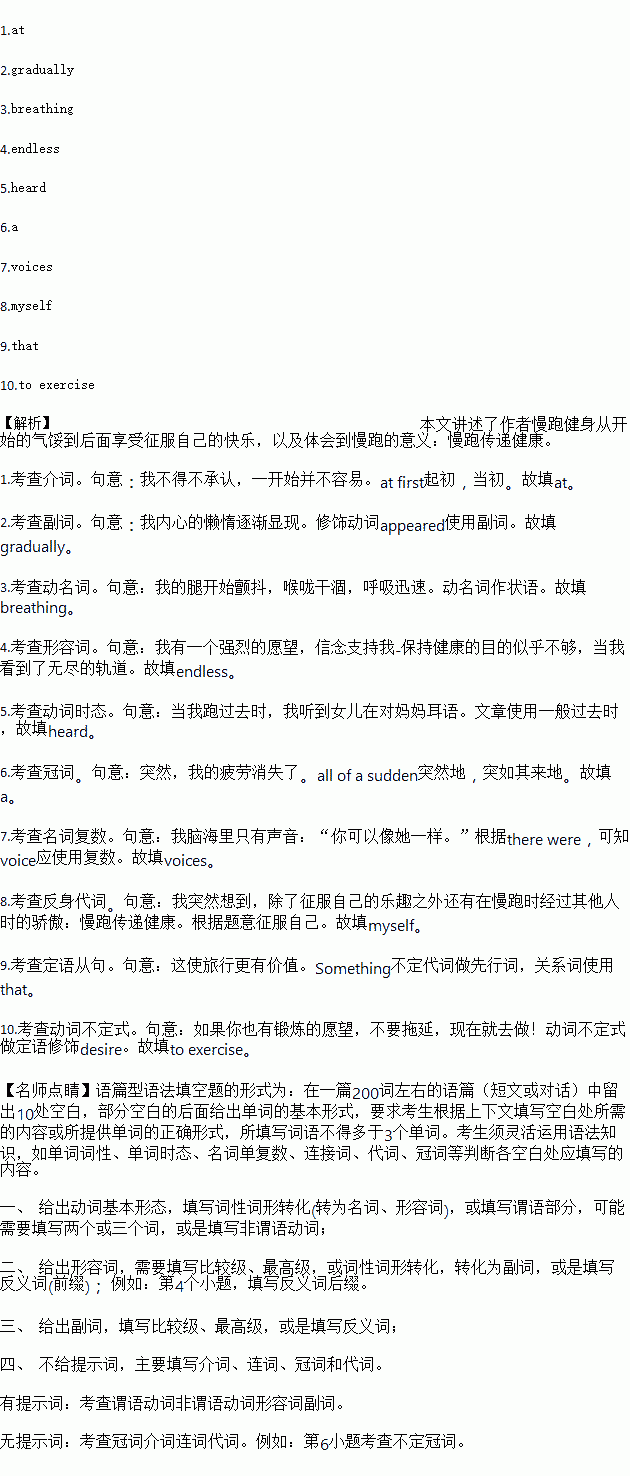题目内容
I’ve found a way to keep fit-jogging . I have to admit that it was not easy 1. first. Often, a few meters from the start, the laziness inside me 2. (gradual) appeared. My legs started to shake and my throat dried up, 3. (breathe) in quickly. What’s worse, the seemingly unreachable finishing line discouraged me. I had a strong desire for belief to support me - the purpose of keeping fit didn’t seem enough when I saw the 4. (end) track.
Just then, I saw a young woman pushing her mother in a wheelchair. As I was running past them, I 5. (hear) the daughter whispering to her mom: “See that girl? You should start exercising, too …”
All of 6. sudden, my tiredness disappeared, and the track and the trees along the way seemed to fade away. There were only 7. (voice) in my head that continued: “You can be just like her.”
It suddenly occurred to me that besides the joy of conquering 8. (I) and the sense of
pride when I ran past other people,there is more meaning in jogging: You jog to pass on the idea of health. And that is something 9. makes the journey more worthwhile.
If you also have the desire 10. (exercise), don’t hold off, do it now!

